Politics
World Parkinson’s Day: Horizon project AI-PROGNOSIS using AI to improve Parkinson’s diagnosis and care
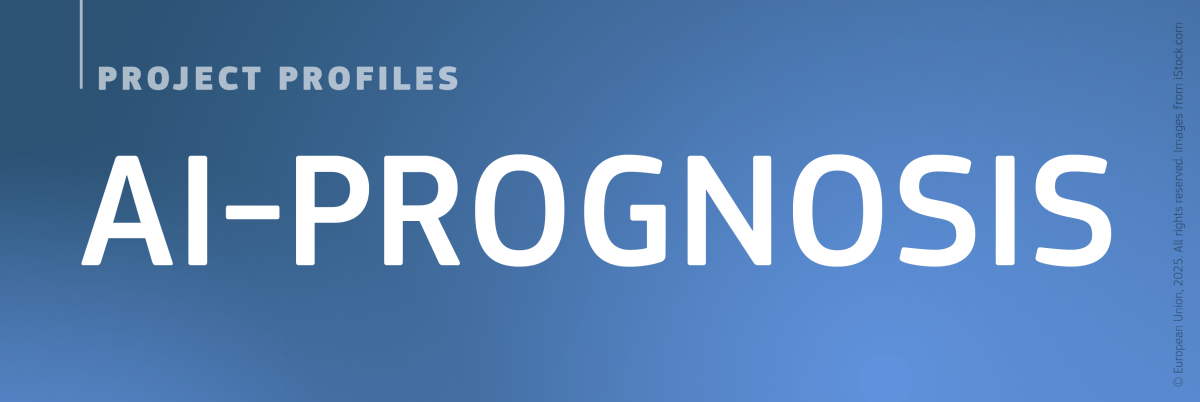
Parkinson’s disease affects more than one million people in the EU and this number is expected to double by 2030, primarily due to an aging population.
To mark World Parkinson’s Day, HaDEA interviewed Prof. Leontios Hadjileontiadis, coordinator of AI-PROGNOSIS, a Horizon Europe research and innovation project aiming to advance Parkinson’s disease diagnosis and care through novel predictive models combined with digital biomarkers from everyday devices, such as smartphones and smartwatches.
Prof. Hadjileontiadis, tell us more about AI-PROGNOSIS.
AI-PROGNOSIS is focused on improving Parkinson’s disease diagnosis and care through predictive models driven by artificial intelligence (AI) and digital biomarkers from everyday devices. The project aims to enhance early detection, predict disease progression and optimise treatment responses, thereby personalising patient care. By leveraging data from smartphones and smartwatches, AI-PROGNOSIS offers valuable insights into individual risk and treatment efficacy, ultimately improving the quality of life for those with Parkinson’s disease.
What can you tell us about your project’s use of AI? Have you encountered any challenges in integrating your solutions in broader healthcare systems?
The lack of interoperability with legacy electronic health record systems has made integrating AI tools into existing clinical workflows difficult. Many healthcare institutions still use outdated systems not designed to support advanced AI technologies. Building trust and acceptance among healthcare professionals and patients has also been a challenge. There is often scepticism about the accuracy and reliability of AI models and concerns about the potential for AI to replace human roles in healthcare. Overcoming these concerns requires continuous education and demonstration of the AI tools’ benefits and reliability.
Navigating the complex regulatory landscape for AI in healthcare has added to the challenges. Ensuring that AI tools meet all legal and ethical standards is essential for their adoption and use. Additionally, accessing existing datasets has been difficult due to data ownership and sharing restrictions, which limit the amount of data available for training AI models. Recruiting patients for studies and trials has also been challenging, as it requires significant time and resources to ensure a diverse and representative sample.
These challenges underscore the importance of a collaborative and adaptive approach in developing and implementing AI solutions in healthcare, ensuring they are both effective and widely accepted.
Could you elaborate on this collaborative and adaptive approach?
AI-PROGNOSIS has adopted a comprehensive and inclusive approach to identify the needs of key stakeholders, including patients, healthcare professionals, and researchers. The project emphasises continuous engagement and collaboration with these groups to ensure the tools developed are user-friendly and meet their needs.
This includes:
- Multidisciplinary workshops: AI-PROGNOSIS organises workshops bringing together experts from various fields to discuss and refine project goals and methodologies;
- Patient involvement: Patients are actively involved in the design and testing phases, providing valuable feedback on usability and functionality;
- Input from health professionals: Regular consultations with doctors and therapists help tailor the AI tools to clinical workflows and practical needs;
-
Input from the external advisory board: Expert guidance on the ethical implementation, strategic integration, industry perspectives and impactful application of AI-PROGNOSIS output in Parkinson’s disease research and care.
This collaborative and iterative approach ensures that AI-PROGNOSIS remains aligned with the real-world needs of its stakeholders, enhancing its impact on Parkinson’s diagnosis and care.
Having consulted with numerous stakeholders, can you give us an example of how this feedback has been used?
For example, in one of the focus groups that we ran, healthcare professionals shared how challenging it was to be informed about their patients’ changing symptoms across the course of the illness. This insight helped us develop the mAI-Insights application, which allows healthcare professionals to receive frequent updates and alerts about their patients’ symptoms.*
With the project running until 2027, how important is the EU’s financial support throughout the project life cycle?
The support of EU funding is crucial for our project. It provides financial resources for extensive research, developing advanced AI models, and integrating digital biomarkers from everyday devices. EU funding under the Horizon Europe programme also facilitates collaboration among multidisciplinary European teams, ensuring that the project benefits from diverse expertise and perspectives. Additionally, this support helps navigate regulatory challenges and promotes the adoption of innovative solutions in healthcare systems. Without EU funding, achieving the project’s ambitious goals and significantly impacting Parkinson’s diagnosis and care would be much more challenging.
*The project also features two other applications: mAI-Health for persons with suspected Parkinson’s to track their personalised risk and mAI-CARE for persons with diganosed Parkinson’s to track symptoms, disease progression and treatment efficacy.
Background
Horizon Europe is the research and innovation programme of the EU for the period 2021-2027. The aims of Cluster 1 ‘Health’ include improving and protecting the health and well-being of citizens of all ages by generating new knowledge, developing innovative solutions and integrating where relevant a gender perspective to prevent, diagnose, monitor, treat and cure diseases. Horizon 2020 (H2020) was the EU’s multiannual funding programme between 2014 and 2020.
Politics
‘Shaping tomorrow and navigating uncertainty: the future of the euro area’ – speech by the Eurogroup President, Paschal Donohoe, at Centre for Financial Studies, Goethe University
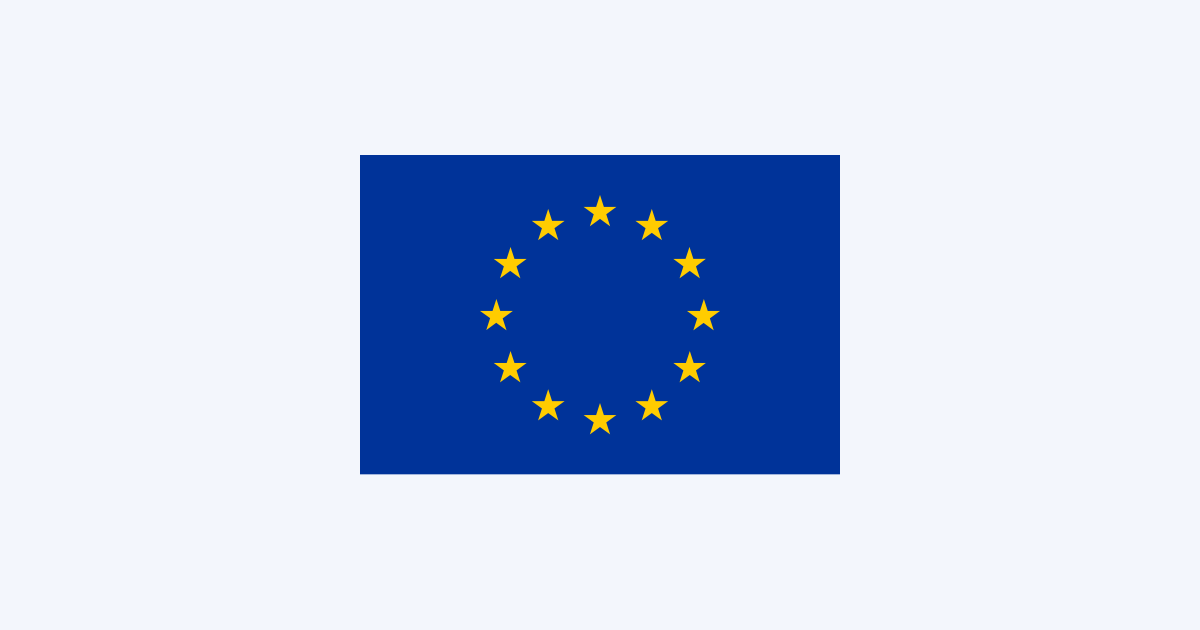

© FRVS+MPCP 2022. The European Times® News is registered as an EU Trademark. All rights reserved. The European Times® and the logo of The European Times® are EU trademarks registered by FRVS+MPCP.
Members/Partners of

About Us
Popular Category
DISCLAIMER OPINIONS: The opinions of the authors or reproduced in the articles are the ones of those stating them and it is their own responsibility. Should you find any incorrections you can always contact the newsdesk to seek a correction or right of replay.
DISCLAIMER TRANSLATIONS: All articles in this site are published in English. The translated versions are done through an automated process known as neural translations. If in doubt, always refer to the original article. Thank you for understanding.
DISCLAIMER PHOTOS: We mostly used photos images that are readily available online, from free sources, or from the people promoting the news. If by any chance it happens that we have used one of your copyrighted photos, please do not hesitate to contact us and we will take it down without question. We do not make profits as this is a not for profit project to give voice to the voiceless while giving them a platform to be informed also of general news, and it is completely free.
Editor Picks
Politics
Nature, climate, and circular economy projects emerge as winners at the 2025 LIFE Awards
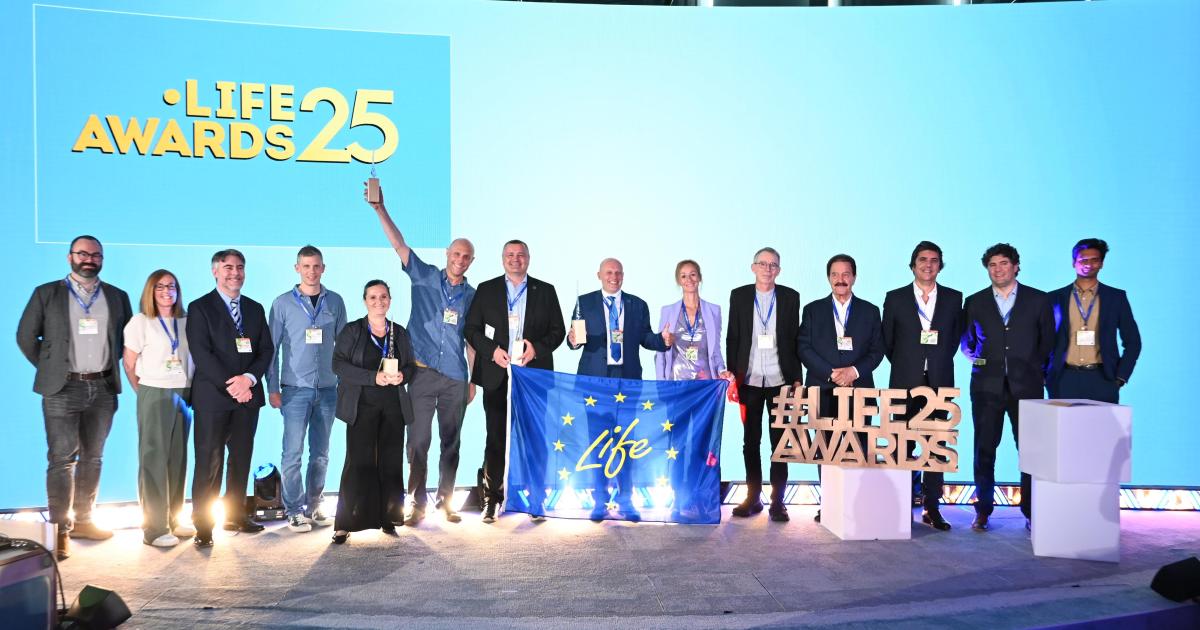
Three outstanding LIFE projects were awarded the LIFE Awards 2025, held as part of European Green Week to recognise excellence in nature conservation, circularity and climate resilience.
The winners were selected from nine finalists in three categories: nature, circular economy and quality of life, and climate action. Together, they represent some of the most creative and impactful initiatives helping to create a greener Europe.
The LIFE Award for Nature went to LIFE Lynx, which brought together conservationists, hunters and local communities to successfully reverse the decline of the Alpine Lynx in the Dinaric Alps. The runners-up in this category were LIFEraisedbogs and LIFE living Natura 2000.
LIFE Lynx also won the LIFE Citizens’ Prize, awarded to the project that received the most public support in an online vote.
The winner of the LIFE Award for Circular Economy and Quality of Life was LIFE POPWAT, which piloted a new nature-based technology to remove hazardous man-made chemicals from contaminated water in Czechia and Poland. The runners-up in this category were LIFE EMERALD and LIFE LANDSCAPE FIRE.
The winner of the LIFE Award for Climate Action was LIFE DESERT-ADAPT, a project combating desertification improving soil quality, improved water retention capacity and improved ecosystem resilience in Italy, Spain and Portugal. The runners-up in this category were NATURAL HVACR 4 LIFE and LIFE Natur’Adapt.
This year a special category was introduced – “Rising Star Recognition” – for projects making a remarkable contribution to the circular economy. This special Award went to LIFE RE-ZIP, a Danish project which aims to replace thousands of tonnes of commercial packaging waste with more environmentally friendly reusable eCommerce packaging. When the project ends in 2026, more than 120 million reusable packages will be in circulation, with 17,000 tonnes of cardboard and plastic waste saved and more than 300 jobs created.
About the LIFE Awards
The LIFE Awards celebrate the most impactful projects implemented under the LIFE Programme each year. Since 1992, LIFE has funded thousands of projects focused on environmental protection and climate action.
The LIFE Awards 2025 were awarded by a jury of experts including Konstantinos Bakoyannis, Chair of the Commission for the Environment, Climate change and Energy (ENVE) of the European Committee of the Regions; Sara Segantin, a writer, journalist, science storyteller and EU Climate Pact Ambassador and Hans Bruyninckx, Professor of Environmental Governance at the University of Antwerp, former European Environment Agency (EEA) Director, and Member of the International Resource Panel.
The jury commended the winners for the immediate and long-term environmental, economic and social improvements of their projects. They recognised their innovation, scale-up potential, and relevance to the EU’s decarbonisation, circularity and biodiversity goals.
Full list of LIFE Awards 2025 finalists
Nature Protection
LIFE Lynx: bringing together conservationists, hunters and local communities to successfully reverse the decline of the Alpine Lynx in Slovenia and Croatia.
LIFEraisedbogs: restoring over 900 hectares of rare raised peat bogs across 10 different sites in Denmark.
LIFE living Natura 2000: campaigning for understanding, acceptance and appreciation of the Natura 2000 network in Germany.
Circular Economy and Quality of Life
LIFE EMERALD: reducing air pollution and improving citizens’ health in Ireland.
LIFE POPWAT: piloting new technology to remove hazardous man-made chemicals from contaminated water in Czechia and Poland.
LIFE LANDSCAPE FIRE: combining traditional and modern fire prevention techniques to reduce large-scale forest fires in Portugal and Spain.
Climate Action
LIFE DESERT-ADAPT: tackling desertification by improving soil health, enhancing water retention, and building ecosystem resilience in Italy, Spain and Portugal.
NATURAL HVACR 4 LIFE: developing viable natural air-conditioning systems to replace climate-damaging F-gases (fluorinated greenhouse gases) in Belgium, Germany, France and Czechia.
LIFE Natur’Adapt: promoting climate change adaptation tools among 1 300 managers at 21 natural protected sites across France.
About the LIFE Programme
The LIFE Programme is the EU’s funding instrument for the environment and climate action. It has been bringing green ideas to life since 1992 and, to date, has co-financed over 6,000 projects across the EU and in third countries. For the 2021-2027 period, the European Commission has increased LIFE Programme funding by almost 60%, up to €5.4 billion, and included the clean energy transition sub-programme.
The recently-announced work programme for the implementation of the LIFE Programme in 2025-2027 established an overall budget of €2.3 billion for projects tackling circular economy, zero pollution, nature and biodiversity, climate mitigation and adaptation, and clean energy. The LIFE Programme is managed by the European Climate, Infrastructure and Environment Executive Agency (CINEA).
For further details on the LIFE Awards 2025, please visit the following link.
Politics
Eurojust supports successful operation against human traffickers

Authorities have tracked down and dismantled a human trafficking network operating in Switzerland. The criminal group recruited young vulnerable women in Romania for sexual exploitation. The close cooperation between investigators from both countries, supported by Eurojust and Europol, culminated in an action day on 3 June, during which 18 suspects were arrested.
The criminal group targeted individuals from disadvantaged communities in Romania. The perpetrators approached their victims on social media, luring them with false romantic promises or offers for them to perform sex work abroad under favourable conditions. Once the victims accepted these offers, they were taken abroad to provide sexual services on escort websites and in rented flats. They were kept under constant surveillance by the criminal group and subjected to appalling conditions, working long hours in degrading and unsafe circumstances. The victims were expected to work continuously, regardless of their mental or physical state. Even visibly pregnant women were forced to work without rest.
Investigations into the group uncovered a large-scale network that had been operating across Europe for over seven years. In 2022, its members moved to Switzerland to continue their activities in several Swiss German-speaking cities, particularly Zurich. The suspected leader of the group started to recruit new members, setting up his own criminal school, where he taught techniques enslaving and exploiting victims. In some cases, victims were traded between members in exchange for money or used as stakes in gambling.
A joint action day to dismantle the criminal group took place on 3 June. Authorities arrested 13 suspects in Romania and five in Switzerland. The alleged victims were brought to safety and given support from a counselling service specialising in human trafficking. In addition to targeting the members in Switzerland, the investigations also focused on individuals in Romania who provided logistical support and laundered the proceeds from the criminal activities.
The successful operation was made possible through close cooperation between Romanian and Swiss authorities under the coordination of Eurojust and Europol. A joint investigation team, set up and funded by Eurojust, ensured the authorities could work together quickly and efficiently. Europol supported the national authorities throughout the investigation by facilitating the exchange of critical intelligence and providing expert analytical support, including the preparation of link charts on the organised crime group. On the action day, Europol provided remote assistance to investigators by cross-checking operational data in real time.
The following authorities carried out the operation:
- Romania: Prosecutor’s Office attached to the High Court of Cassation and Justice – Directorate for Investigating Organised Crime and Terrorism, Bacau Territorial Service; Police Brigade for Combating Organised Crime Iași, Police Service for Combating Organised Crime Neamț; Neamț and Bacău County Gendarmerie Inspectorates; Mobile Gendarmerie Unit Bacău.
- Switzerland: Public Prosecutor’s Office of the canton of Zurich; Zurich City Police
Authorities have tracked down and dismantled a human trafficking network operating in Switzerland. The criminal group recruited young vulnerable women in Romania for sexual exploitation. The close cooperation between investigators from both countries, supported by Eurojust and Europol, culminated in an action day on 3 June, during which 17 suspects were identified.
Source link
-
EU & the World3 days ago
Aurora Borealis Forecast: Where & When to See the Northern Lights Tonight
-

 Sports4 days ago
Sports4 days agoChampions League Final 2024-2025: PSG-Inter, official lineups
-

 EU & the World7 days ago
EU & the World7 days agoWhat Is Kevin Costner’s Net Worth? How Much the Actor Makes
-

 EU & the World7 days ago
EU & the World7 days ago‘Survivor’ Season 50 Cast: See Which Stars Are Competing
-

 EU & the World7 days ago
EU & the World7 days agoTodd Chrisley’s Kids: Everything To Know About The 5 Children He Shares With Julie
-
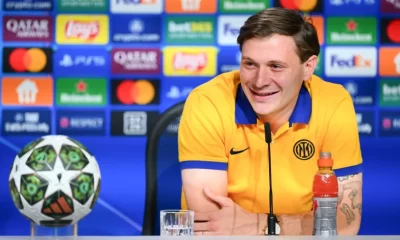
 Sports5 days ago
Sports5 days agoPSG-Inter, Nicolò Barella jokes about Gianluigi Donnarumma
-

 EU & the World4 days ago
EU & the World4 days agoRihanna’s Parents: About Her Late Dad Ronald Fenty & Mom Monica Braithwaite
-
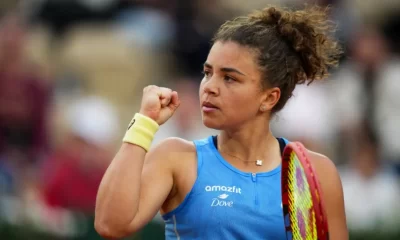
 Sports7 days ago
Sports7 days agoJasmine Paolini wants to try not to think about the triumph in Rome









